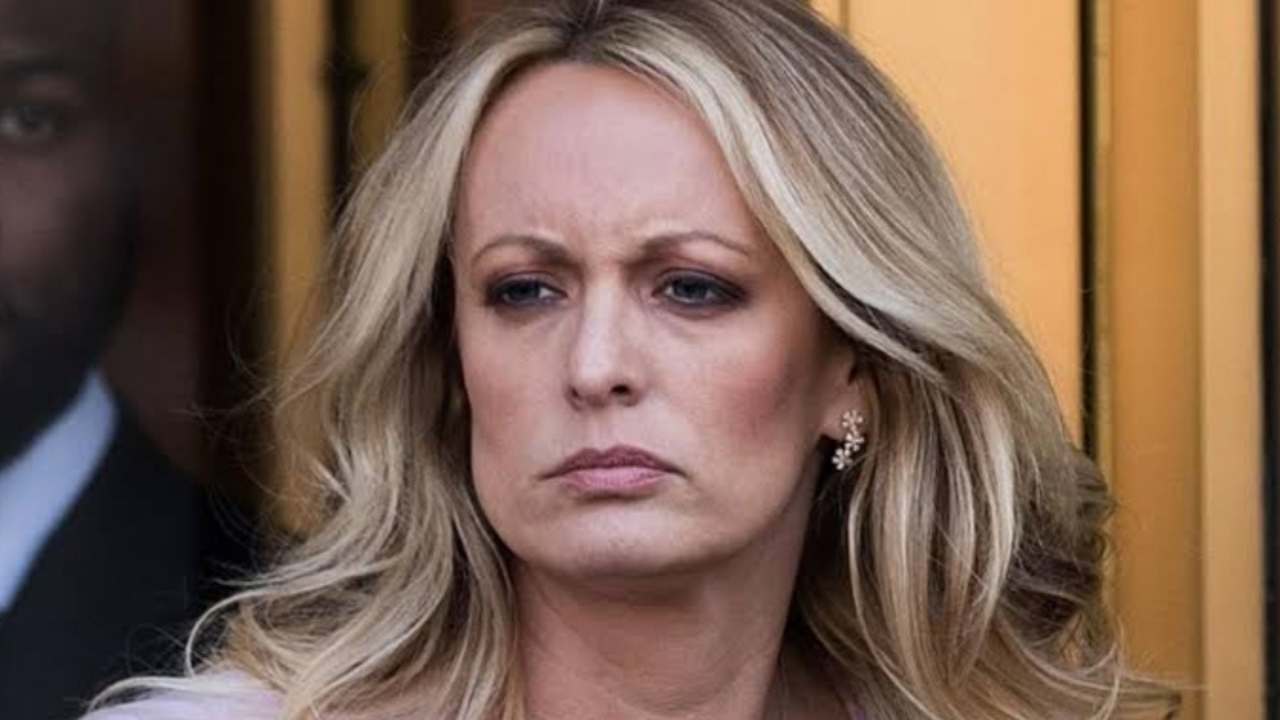Indeed, Stormy Daniels has a reputation for being unapologetic and assertive, both on social media and in the courtroom. Her approach to handling criticism and addressing controversies reflects the changing landscape of public perception surrounding sex scandals compared to the era of Bill Clinton.
The contrast between the treatment of women involved in scandals then and now is stark. While Paula Jones and Monica Lewinsky faced mockery and belittlement in the 1990s, Stormy Daniels’ confident demeanor and refusal to back down in the face of criticism highlight a shift in attitudes towards women speaking out about their experiences with powerful figures.

Despite the similarities in media interest and coverage, there seems to be more support and recognition for the agency of women like Daniels today.
The contrasting reactions to Stormy Daniels and Hope Hicks in Trump’s trial highlight not only Daniels’ confident persona but also the evolving cultural attitudes and support systems available to women in similar situations.
The harsh treatment endured by women like Monica Lewinsky and Paula Jones during the Clinton scandals reflects the deeply ingrained misogyny and power imbalances of that era, perpetuated by both media figures and politicians.
Stormy Daniels’ response in the courtroom exemplifies her resilience and refusal to be shamed for her past. Her experience in the adult film industry not only provides her with a sense of agency but also shields her from traditional forms of derogation.
By confidently affirming the authenticity of her experiences, Daniels challenges attempts to undermine her credibility and stands firm in asserting her truth.
It’s notable that while Stormy Daniels has been in the spotlight, she hasn’t been the target of ridicule in late-night comedy as much as one might expect.
Instead, the focus has been on the peculiarities of the trial itself and the reactions of those involved.
This shift in comedic focus reflects both Daniels’ resilience and the evolving cultural attitudes towards discussing topics like sexuality and scandal in the media.
The differing treatment of Stormy Daniels in various media circles raises important questions about credibility and bias.
While some mainstream outlets may afford her a more sympathetic portrayal, certain right-wing media voices have been more critical, questioning her credibility and motives.
This disparity underscores the complex dynamics at play in how different media outlets frame and interpret events, particularly when it comes to high-profile trials involving polarizing figures like Donald Trump.
Leora Tanenbaum’s insights highlight the transformative impact of movements like #MeToo on how sexual dynamics are discussed and understood in the media.
The language and awareness surrounding issues like slut-shaming have evolved, empowering women like Stormy Daniels to challenge sexist narratives and assert their agency.
Social media has played a crucial role in this shift, providing a platform for individuals to directly address and confront harmful stereotypes in real time.
The ability to control their own narratives and respond to rumors has given women a newfound sense of power and autonomy, reshaping the landscape of public discourse around sexual scandals compared to the 1990s.

Leora Tanenbaum’s observations shed light on the lingering double standards and stereotypes that persist regarding women talking about sex in the media.
While there are signs of progress in how adult film workers are being treated with more respect in certain contexts, such as interviews on mainstream news outlets, there’s still work to be done to combat the stigmatization of women in the sex industry.
The examples of political figures like U.S. Rep. Brandon Williams and the Virginia state delegate candidate reflect a shifting attitude towards sexuality and women’s agency in the political realm, albeit with some controversy.
Additionally, Monica Lewinsky’s journey towards rehabilitation and advocacy highlights the evolving cultural landscape and the increased scrutiny placed on scandal-ridden male politicians.
Stormy Daniels’ testimony and the media’s response to it serve as a barometer of these changing dynamics, emphasizing the need for a nuanced approach to covering scandals that goes beyond mere sensationalism.
As society continues to grapple with issues of gender, power, and sexuality, it’s essential to recognize that behind the entertainment value of scandals lies real human experiences and consequences.





